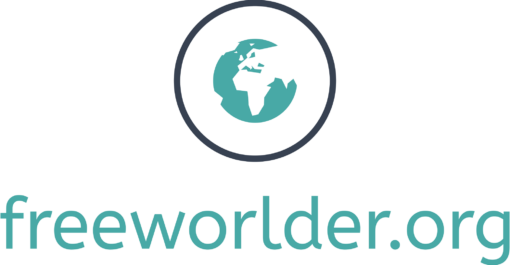Canada’s open spirit attracts people who seek space, creativity, and control over their own lives. Its balance between structure and freedom allows residents to grow on their own terms. From remote work to self-built homes, Canada became a haven for independent lifestyles by embracing choice over conformity. Those who want to discover the world’s wonders often realize that they can do so right within Canada’s borders—through its welcoming communities, cultural openness, and endless landscapes that invite self-direction.
Canada Became a Haven for Independent Lifestyles Because Of Its Roots
Throughout history, Canada has valued resilience and self-reliance. Immigrants, explorers, and settlers shaped a culture where effort and innovation matter more than status. Each region tells a story of people who found purpose through independence.
For example, small towns developed through local craftsmanship and community-driven projects. Every effort relied on cooperation, but freedom remained central. The mix of languages, customs, and values created a society where difference is not only accepted but respected.
As a result, independence here means balance. It’s not isolation—it’s the confidence to live uniquely while still belonging. That philosophy explains why artists, remote workers, and entrepreneurs continue to build new paths in this country.

Urban Spaces That Inspire Autonomy
Cities across Canada reveal how structure supports freedom. Toronto encourages small businesses through local grants and pop-up markets. Vancouver promotes sustainability, giving residents a sense of purpose and independence. Calgary merges innovation with practicality, drawing tech workers and creatives who want flexibility.
These cities show that independence thrives where opportunity meets community. Every street corner, park, and co-working hub gives space for ideas to take shape.
Here’s what often defines independent living in Canadian cities:
- Access to flexible workspaces and community offices.
- Housing initiatives that allow minimalism and eco-design.
- Public funding that supports creative professions.
- Strong digital infrastructure that connects even small districts.
Each of these elements helps people act on their ideas without waiting for ideal conditions. The country encourages initiative—and that culture keeps expanding across regions.
A New Generation of Solo Explorers
Across the nation, travellers redefine independence. Many people choose solo travel as a path toward self-discovery and resilience. A solo trip to Montreal often begins as an act of curiosity and ends as a lesson in self-trust. The city’s art, food, and street life remind visitors that independence is not solitude—it’s connection without dependence.
Urban independence extends beyond travel. Remote professionals use mobility as a tool for self-growth. They set their own schedules, design their own spaces, and redefine success in ways that align with personal priorities.
Mobility as a Path to Freedom
Relocation often marks the first bold step toward independence. People who move between provinces or from cities to rural regions face challenges, but those challenges create confidence. Reliable support transforms the process from stressful to empowering.
Companies like Miracle Movers help individuals and families relocate with clarity and control. By managing logistics, they let people focus on their goals instead of boxes. The right help during a move turns transition into an opportunity.
Smooth, well-planned mobility ensures freedom is not delayed by stress. Every successful move strengthens the idea that Canada became a haven for independent lifestyles because it supports both ambition and adaptability.
Remote Regions, Reimagined Living
Across Canada, smaller communities have started to draw people who want simplicity and control over their surroundings. Many have traded city crowds for wide horizons and slower rhythms. Newcomers find meaning in building cabins, running local shops, or growing their own food.
These regions now attract freelancers, artists, and families who want a more adventurous lifestyle, affordable housing and close contact with nature. Access to high-speed internet and regional flight routes keeps them connected. As a result, remote provinces are no longer seen as isolated—they have become creative laboratories for new ways of living.
For many, life in the countryside strengthens mental clarity and community ties. People build connections through local projects and mutual help. Rural life offers space not only to work but also to think.

Creative Entrepreneurship in Smaller Towns
Independent living often begins with small ideas that grow into meaningful work. Across Canada, creative entrepreneurship has reshaped once-quiet towns into local success stories. Makers sell goods online while staying close to home. Farmers transform barns into studios or retreat spaces.
These ventures prove that self-employment and community well-being can exist together. Public workshops, local art fairs, and weekend markets support fresh talent. With smaller costs and fewer formal barriers, people act faster and test new concepts.
As towns attract independent professionals, local economies adapt. Empty buildings gain new life, and communities gain purpose through shared participation. Every success strengthens the belief that Canada has become a haven for independent lifestyles because it rewards initiative at every scale.
Entrepreneurs in these towns show how independence does not mean isolation. It means living by values, not obligations.
Nature as a Catalyst for Independence
Canada’s landscape shapes the national sense of freedom. Forests, lakes, and coastlines give people both peace and perspective. Many city dwellers now spend long periods in rural rentals or converted cottages to reconnect with silence and self-direction.
The idea of falling for Newfoundland captures this perfectly. Travellers arrive expecting distance and discover belonging instead. They meet locals who share stories, music, and warmth. The rugged coast teaches patience and self-trust—qualities that strengthen independence.
Time in nature often resets priorities. The absence of constant noise and pressure reveals what truly matters. People find that independence grows best where nature remains close and honest.
Technology and the Remote Work Revolution
Digital progress has transformed how Canadians define mobility and success. Fast connections and flexible contracts allow people to live wherever they choose. Entire careers now thrive from small apartments overlooking lakes or cabins in the woods.
Tech-enabled independence supports families, singles, and retirees alike. Governments invest in rural broadband and coworking hubs to ensure opportunity is not limited to cities. Through this, the meaning of freedom has shifted—from travel to control over one’s schedule.
As modern tools meet timeless landscapes, a new lifestyle model has emerged. Work adapts to life, not the other way around.

A Spirit Rooted in Freedom
At its heart, independence in Canada reflects both courage and structure. Across cities, towns, and coasts, people define life through self-direction and choice. The country’s systems—mobility, housing, and community support—help turn intention into action. In every sense, Canada became a haven for independent lifestyles because it values flexibility, not uniformity. Readers who crave change should take that lesson forward: independence grows where people act with purpose and create the life they truly want.




